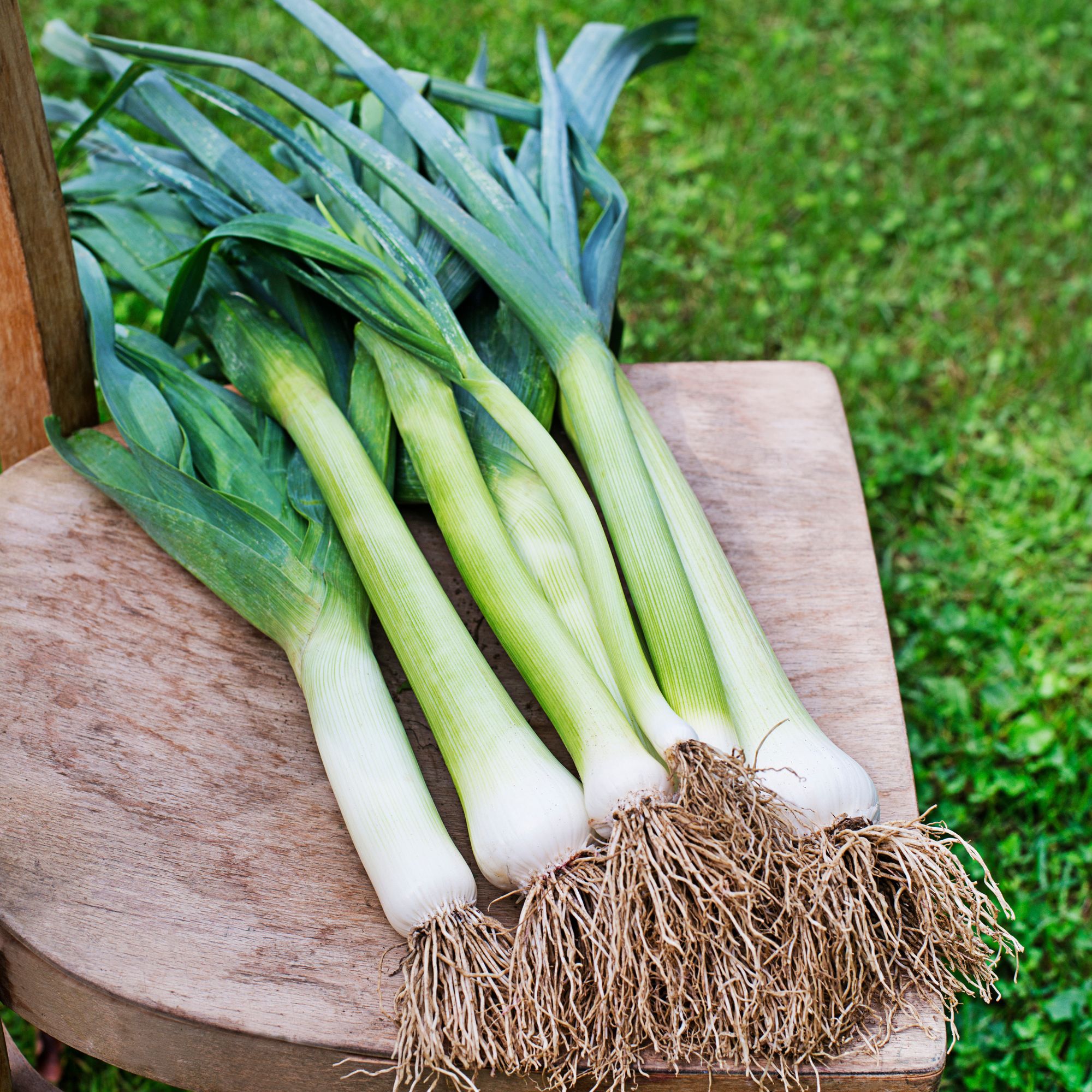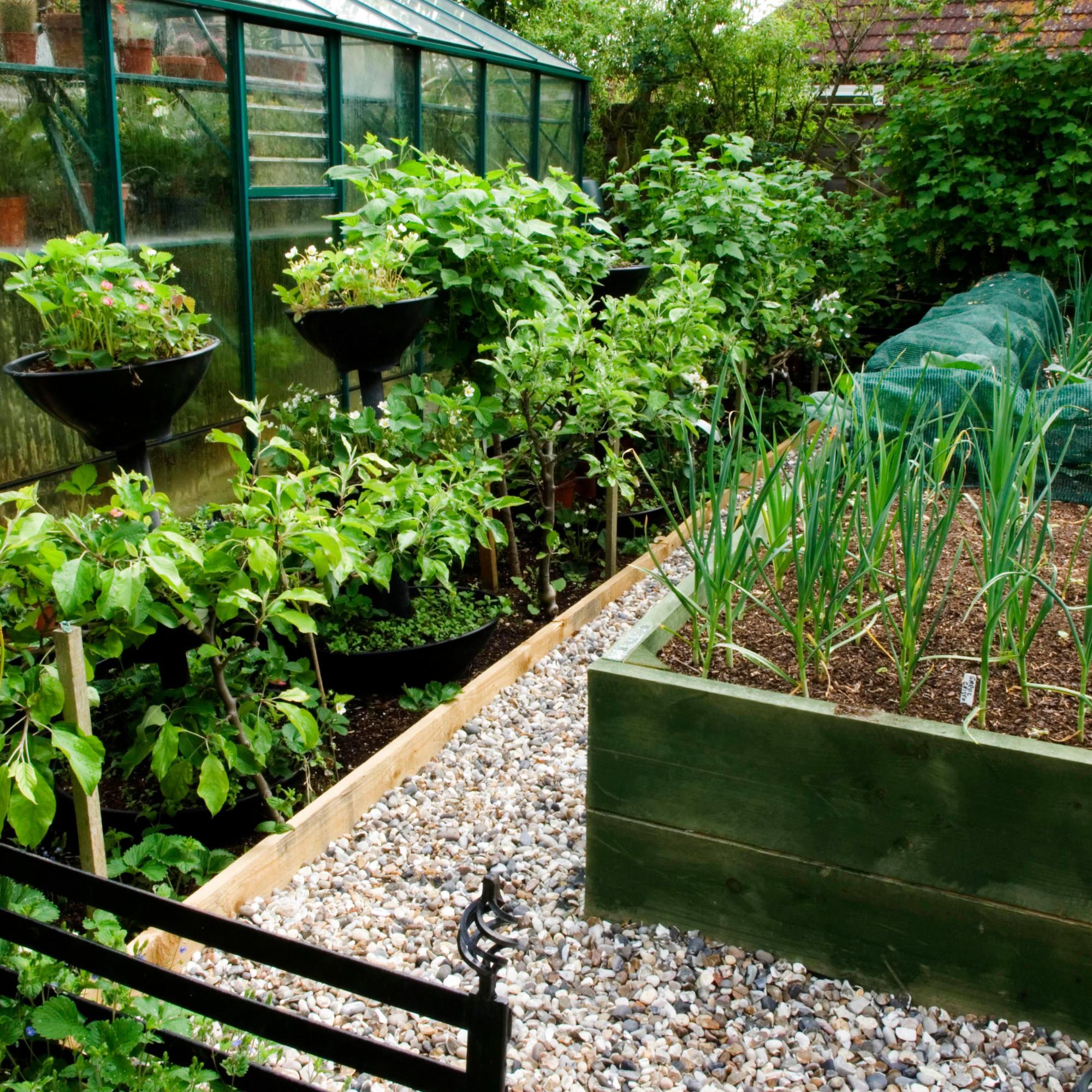
We're willing to bet that learning how to grow leeks has been on your to-do list for a while – and if it isn't, it should be! This versatile vegetable is part of the allium family, so alongside being easy to grow, it will also look good while rowing.
Hardy, quick-growing, and the standout star of countless recipes, leeks are an excellent starting point for anyone hoping to grow their own vegetables. And it doesn't matter if you have a small vegetable garden, either, as they don't need lots of space.
Even better? They work to our schedules! As per the Royal Horticultural Society (RHS), leeks 'usually reach maturity after four or five months, in autumn and winter, when other fresh crops may be in short supply, and they don’t have to be harvested straight away'.
If you weren't on board before, we suspect you're now very much in the mood to learn how to grow leeks. And, thankfully for you, our expert growing guide makes it easier than ever to successfully sow seeds and nurture them until they're ready for harvesting...
What you will need
'Leeks are best started by seed in springtime,' says Morris Hankinson, director of Hopes Grove Nurseries.
'That being said, if you haven’t sown any yet, don't despair – they can often be bought as young plants in garden centres and nurseries,' he adds.
With that caveat in place, then, you will need...
- Leek seeds: try the Leek 'Lyon' from Crocus for a favourite on the show bench and in the kitchen, or one of the many leek seed varieties from Thompson & Morgan
- A good peat-free compost: you can get a bumper bag of Levington PEAT FREE Seed Compost (with added John Innes) from Amazon.
- A selection of pots or seed trays: try the seed trays designed by Charles Dowding if you want undisturbed roots.
- A good garden compost: well-rotted manure will work just as well.
- A large dibber: we're fans of the GARDTECH Stainless Steel Dibber from Amazon, although a trowel handle will work just as well.
Step-by-step guide
Once you have everything you need to hand, it's time to start growing leeks in earnest.
Here's what you need to do...
1. Plant your leek seeds
While you can sow leek seeds directly into your garden or raised beds, it's best to plant them undercover if you want to get a head start on things.
'Sow your leek seeds into modules or trays about 1cm deep and keep on a warm windowsill until they are strong enough to be planted outside, which is usually at about 20cm tall,' says Morris.
If you do decide to plant directly outside, he advises you wait until after the last frost and that you give them a layer of fleece (like this Garden Plant Fleece from Amazon) to protect them in colder weather.
2. Prep your seedlings
An important step in our How To Grow Leeks 101 is this: harden them off before planting them out.
'If you have leeks grown undercover, harden them off before planting outside, and make sure the planting bed has been prepared by weeding and removing stones,' says Morris.
3. Get them outdoors

When it comes to growing leeks, Morris says that outdoor planting usually takes place between May to July.
'Prepare holes in a line with a dibber (or a pencil will do),' he says, noting that the holes should be about 15cm deep and a good 5cm wide, spaced about 15cm apart.
'Allow at least 30cm between each hole, then drop each leek into a hole and water it well,' he adds. 'There is no need to fill in the holes around the plants as this will happen naturally and helps the leeks to develop.'
Top tip: 'By planting leeks quite deep, the white of the leek (which is often referred to as the shank) will taste better,' says Morris.
4. Show them some love
Thankfully, it's incredibly easy to learn how to grow leeks, as there's very little maintenance involved.
That being said, Morris says 'you may want to "earth up" around them as they grow bigger, because this will help the shanks to develop properly'.
Be sure, too, to weed them regularly and water them well during dry spells, taking care to avoid the most damaging of watering mistakes: watering them from overhead. Instead, take care to water them directly at the roots, as this will help your plants to avoid fungal diseases like leek rust.
Mulching is a great way, too, to help your leeks get the moist (yet not sodden) soil they crave and deserve.
5. Harvest

Guess what? You can harvest leeks at any size – so you can pick them at a time that best suits you!
'Leeks take up to five months to go from seed to harvest,' says Morris, noting that they 'can even be left in the ground all winter so you can harvest as and when you need to'.
'Generally, they will be ready from August to February and can be gently lifted from the soil,' he adds. 'You may need to use a garden fork to help lift them out of the soil.'
Don't have time to wait? Baby leeks are every bit as delicious as fully grown ones, Morris adds.
FAQs
What month do you plant leeks?
Whether you start them indoors or outdoors, leeks are usually started from seed in early spring or summer. Most people, as a rule, tend to sow theirs between February and April, before planting them out in the warmer months of May through to July.
How do you grow leeks successfully?
If you're wondering how to grow leeks successfully, you're in luck; they tend to maintain themselves once you've planted them out.
'Leeks need a well drained, sunny site to thrive and regular watering, especially when there is a long dry spell of weather,' says Morris Hankinson of Hopes Grove Nurseries. 'Otherwise, they are very easy to grow.'
Once you've learned how to grow leeks, it's time to learn how to cook them – anyone else suddenly in the mood for cheesy buttered leeks?







